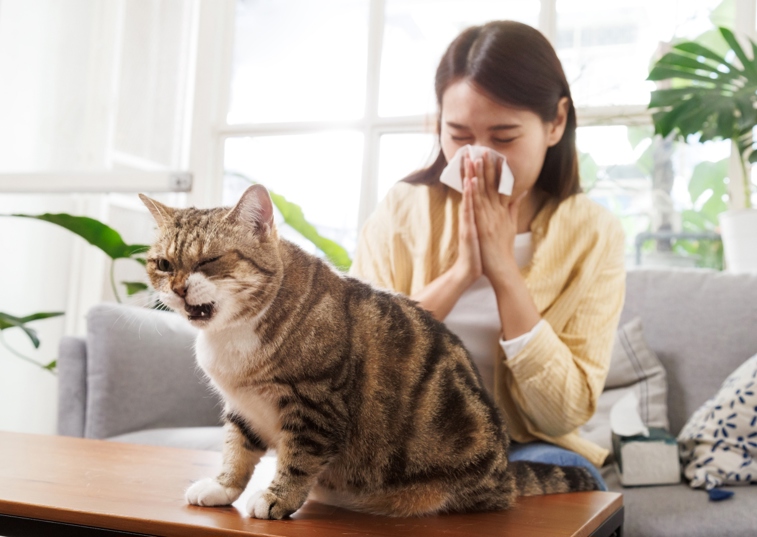As award winning pet insurance specialists we’ve designed 15 cover levels to give you the freedom to choose the right level of cover for you and your dog. Just click the options below to find out more.
Whippet pet insurance
Whippets are sociable, elegant dogs. They have a lot of energy and are super-fast runners, but they are also remarkably adept at being couch potatoes.
People often see Whippets as smaller versions of Greyhounds. Yet, while this breed is part of the hound group, this is not the case.
These gentle dogs love spending time with their owners and make great companions. They are a popular choice among first-time owners because of their size. However, it can take a fair amount of time and patience to train them properly.
This guide is full of useful information about how to look after your pet, what insurance cover they need, and how to compare quotes. We’ll try to answer all your questions, such as: Is it easy to train a Whippet? How long can you leave a Whippet alone? Is it worth insuring my dog? And how much does Whippet pet insurance cost?
Facts about Whippets
Learn more about this friendly breed of dog with our selection of facts and stats.
Vital stats
Size: Medium, 44 to 51 cm
Weight: 11 to 18 kg
Coat: Thin and short, minimal grooming needs
Colours: Black; Brindle; White; Fawn
Exercise: At least one hour per day
Features: Dolichocephalic (long face)
Social/attention needs: High
Lifespan: 12 to 15 years
Temperament: Quiet, gentle, agile
Bred for: Coursing; Racing
Price: £1,500-£3,000
Facts you might not know about Whippets
Whippets were originally bred for hunting and can reach speeds of up to 35mph
Whippets used to be referred to as the ‘poor man’s Greyhound’. This dates back to when dog racing was a pursuit of the rich. Those who couldn’t afford the more expensive Greyhound breed would create their own tracks and race more affordable Whippets
Whippets are world record holders:
-
A Whippet named Davy holds the world record for the farthest flying Frisbee caught by a dog. It was set in 2012 and the distance was 122.5m
-
A Whippet named Sounders broke the world record by jumping 11.02 metres at a dock jumping competition in 2019
-
Toby the Whippet holds the record for the fastest time to burst 100 balloons by a dog (28.22 seconds), set in 2017
Whippets are very quiet and hardly ever bark. They don’t make the best guard dogs!
6 things to consider before getting a Whippet
Whippets appeal to lots of different owners for lots of different reasons. Not too big, with relatively straightforward care needs, they are a good choice of pet. If you are thinking of making a Whippet the newest member of your family, there are a few things to consider.
1. They’re really fast: As sighthounds, if they spot something in the distance that takes their fancy, they’ll be off. And at super-fast speeds.
2. They’re lazy: Once they’ve spent that energy, they’re more than happy to slob around on the sofa for the rest of the day. So if you’re wondering: Can you have a Whippet in an apartment or flat? The answer is yes. Just as long as you are prepared to take them out for two walks every day.
3. They’re independent thinkers: Whippets are caring, loyal companions, but they also have an independent streak. You need to make sure they know you’re the boss.
4. They’re naturally shy: Whippets can be a bit standoffish and their natural caution can quickly turn into shyness. Early and extensive socialisation is a must.
5. They’re sensitive souls: Whippets are very peaceful dogs that do not react well to stress and tension. They do best in a quiet, stress-free home.
6. They're affectionate: Gentle characters by nature, this breed thrives on human company. This breed would not suit a family if they do not spend lots of time at home. Whippets form strong bonds with their families so can be susceptible to separation anxiety.
Whippets at home
Gentle and kind the Whippet can make a wonderful family dog, however their need for peace and quiet can mean they may not get on so well in a noisy boisterous home. A quiet breed, with some owners saying they have never heard theirs bark! Whippets can make a good breed for apartment living providing their exercise needs are being met.
Spending most of their day relaxing at home, they extremely dislike cold, hard surfaces much preferring a good snooze on the sofa. So, if you hate the thought of a dog on your furniture a Whippet may not be the dog for you.
A shy breed, early socialisation is required to help them gain confidence with lots of different situations, people, and dogs. Due to their sensitive nature this breed may not be suitable to a home with younger children.
Top care tips
-
Whippets get cold easily, so a good coat/jumper is needed during the cold months.
-
Due to their strong prey drive, this breed is better walked ‘on leash’.
-
An extremely agile dog a high, fenced yard is a must.
-
Due to their fine skin and coat, gentle grooming is key.
Common health problems in Whippets
Whippets are considered a healthy dog breed, but they can still suffer from issues with their health.
To help your pet stay healthy, it’s important you stay up to date with all routine health checks, such as vaccinations, worming treatment, neutering and dental check-ups.
You should also be aware of common health issues affecting this breed so you can spot potential symptoms early. Vet’s bills can quickly add up, so having UK pet insurance in place can help you cover those costs. And the quicker you act, the better. A speedy diagnosis from a vet, means treatment can start sooner and your dog can get better faster.
Here are some of the most common health conditions affecting this breed.
Cuts and wounds
The combination of a thin, light coat and tearing around a park at lightning speeds, it is little wonder Whippets get cuts and scrapes on their bodies. If a cut is not very serious, you can treat it at home with some salt water. Try to keep the wound dry until it heals. If a cut is deep or bleeding a lot, it is better to take them to the vet. They could need stitches.
Eye problems
Whippets can experience problems with their eyes, specifically progressive retinal atrophy – the gradual loss of sight over several months or years. This is a hereditary disease that can be avoided through screening Whippet puppies’ parents.
Foot issues
Whippets can suffer with problems on their feet. They can suffer from corns – thickened areas of skin on the feet that make it painful to walk. When out and about, a Whippet’s foot pads are prone to cuts and grazes, and they can easily get grass seeds trapped between their toes.
Keep an eye on their feet and look out for tell-tale signs of discomfort – such as frequently licking their paws. Speak with your vet if you’re worried.
Heart conditions
It is thought that Whippets are at an increased risk of mitral valve disease – a heart condition which weakens the valve allowing blood to flow back into the heart. This is an early indicator of heart disease and possible heart failure. Your vet can prescribe medication that will help manage the symptoms and ensure your pet has a good quality of life.
Lethargy
It’s hard to imagine such an energetic dog getting lethargic, but if it does happen it could be a sign of something more serious. Causes of lethargy include being overweight and infections.
Make sure you feed your Whippet the recommended amount of food each day and stay up to date with vaccinations. If you are worried, speak to your vet.
Pancreatitis
Pancreatitis is characterized as the chronic inflammation of the Pancreas, which can be extremely painful for your pooch. Chronic pancreatitis can be treated with the help of fluid therapy, lifestyle adjustments, and surgery in some instances.
Hypothyroidism
Hypothyroidism is caused by the underproduction of the thyroid gland. This gland is responsible for regulating a dog’s metabolism. Hence, dogs with this condition can experience a wide range of symptoms including hair loss, loss of appetite or thirst, and lethargy.
History
The Whippet hails from humble origins in 18th century Great Britain. The breed's ancestors helped poach rabbits and provided gambling entertainment in "snap dog" contests, in which the winner was the dog that could snap up the most rabbits within an enclosure in the shortest time. With the Industrial Revolution came the urban incarnation of snap dog contests — racing down a straightaway to grab a rag waved by the guardians. The whippet is still known by the nickname it earned in those days: the poor man's racehorse.
Besides its obvious Greyhound association, the whippet probably has an early dash of ratting terrier (for quickness) and a later cross with Italian greyhounds (for elegance and refinement).
The whippet is the unrivalled sprinter of the dog world, able to make hairpin turns at high speed. This ability has not only made it the most popular breed competing in the sport of lure-coursing, but it also launched one whippet to fame and eventually started a new canine sport. That whippet was Ashley whippet, the founding dog of competitive canine Frisbee catching.
Want to find out more about our Whippet Insurance/Dog Insurance Product?
We’ve listed our key benefits below and you can also take a look at our cover levels, customer reviews and awards.
Ready to get started and get a quote?
Why choose Purely Pets
Free 24 hour Vet Helpline for all customers
There’s no upper age limit
Easy online claims process
Payments made direct to vet
15 levels of Lifetime cover
Lifetime Cover up to £15,000
Flexible Excess Options
Manage your policy online
Award winning Pet Insurance
How to care for your Whippet
As a dog owner, it’s up to you to make sure your pet stays happy and healthy. Here are a few tips on what is involved.
Feeding your dog
You will need to feed your Whippet twice a day, making sure it is good quality food. The amount you give your dog will depend on their age, size and levels of exercise – speak with your vet if you are unsure.
It is important to get portion sizes right as a Whippet’s frame is not suited to additional weight. Whippets appear skinny in comparison to other dog breeds, but maintaining the correct weight will avoid health issues (and hopefully the need to claim on your insurance).
Exercising your dog
You only have to see a Whippet off their lead in a park to realise that these are high-energy animals. However, those bursts of energy don’t last for long.
Two one-hour walks a day – giving them time to run and explore – should give your pet the exercise they need. Because they have such a high prey drive, be sure to keep a good grip on their lead when you’re near roads. Given half a chance, they’ll quickly give chase. Not giving them enough exercise can lead to destructive Whippet behaviour problems.
Training your dog
Whippets are thought to be fairly intelligent dogs, but sometimes it can take them a while to learn new things. When training your Whippet make sure you focus on positive, reward-based methods from an early age, being both patient and consistent.
Whippets can be a bit nervous, so it is important to socialise your Whippet from a young age. This allows them to build up their confidence in new situations and when meeting people and dogs. They also suffer from separation anxiety, so don’t leave your Whippet alone for any length of time.
They want company for most of the day and may start to destroy furniture and other items if that is not the case - and your insurance may not cover those costs.
Grooming your dog
When it comes to grooming, you could say a Whippet is a dream pet. They shed very little fur and only need to be brushed once a week. However, Whippets also love attention – and just love to be brushed with a grooming mitt, so feel free to do it a few times a week.
If your Whippet is really dirty you can give them a bath, but you can probably get away with just wiping them down with a damp cloth. As mentioned, with such thin coats Whippets are prone to cuts and scrapes.
Make sure you give them a once-over every day to make sure they haven’t sustained an injury.
The Purely Pet Promise
At Purely, we’re here to support you. That’s why we offer a 24 Hour Vet Helpline free of charge to all of our customers. Our easy to use online portal ‘Manage My Policy’, enables you to access to your policy 24hrs a day. This provides greater flexibility, allowing you to manage your policy at a time that suits you, so that you can spend more time with your furry friends, and less time managing your insurance. Get a quote
Our Dog insurance cover levels

For your dog

For your dogs, for your cats or for both
Types of pet insurance policies for Whippets
When it comes to choosing insurance, there are different pet insurance policies to compare. Depending on the level of cover you require, here are the four most popular with pet insurance customers:
Lifetime pet insurance:
Covering injuries resulting from accidents, illnesses and a variety of health conditions, lifetime pet insurance is the most comprehensive policy available. It runs for a 12-month period and you need to renew the policy each year.
There tends to be a limit on how much you can spend on treatment for a specific condition each year. However, as long as you stay up to date with payments and keep renewing annually, the amount will reset every 12 months.
Maximum benefit pet insurance:
With this type of insurance, you can spend a fixed amount on treatment for a particular condition. Once you have reached that limit, you cannot make any further claims for the condition – even if you renew the same policy.
Time limited pet insurance:
This type of insurance policy covers your pet for a certain period of time – generally 12 months. You may find you reach the limit sooner, in which case your pet will no longer be covered. If your dog is diagnosed with a condition that requires vet treatment for more than 12 months, you will have to pay for it yourself.
Accident only pet insurance:
The most basic cover, accident-only pet insurance is also the most cost-effective. It means your pet is covered if they have been injured in an accident, but not for any other health conditions. For example, if they are diagnosed with an illness that requires vet treatment, they will not be covered.
If they start to show symptoms for a health condition, you will have to pay for the treatment out of your own pocket.
How much does the average pet insurance cost?
As a dog owner, there are all sorts of costs you need to consider – from buying a pup to finding the right pet insurance. Some of the main costs include:
Buying a dog: The cost of Whippet puppies can be anywhere between £800 and £2,000, depending on the breeder and a number of other variables. However, if you are happy to get an older dog, you might find that adopting a Whippet rescue dog is a more cost effective option.
Equipment: This includes everything from lead, collar, harness, bed, and food bowl to things like pet-safe toothbrushes and toothpaste, toys, grooming brushes and poo bags.
Health costs: Pet insurance doesn’t usually cover preventative healthcare, for example routine vaccinations, neutering and worming treatments. You will have to pay for these yourself. Vets costs can soon add up, so it’s important to take out insurance as soon as you get your new pup.
According to figures from the PDSA, 27% of UK adults own a dog. That’s an estimated 10.2 million dogs – and a lot of owners with opinions on how best to care for their animal. But to keep costs down, pet insurance should be front of mind for everyone.
The cost of insurance can vary based on a number of factors, such as type of cover, the age of your pet, its breed, and where you live in the UK.
According to the ABI, the average pet insurance policy premium is £271. However, you can expect to pay a little more than the UK average when insuring a Whippet. Always make sure you compare quotes before making a decision.
Other costs: As mentioned above, you need plenty of time and patience to train a Whippet properly. With that in mind, you might consider paying for professional training. Other additional costs include boarding kennels if you go on holiday and dog walking services if other commitments mean you’re unable to walk your pooch as much as you (or rather they) would like.
How can I lower my pet insurance?
If you’re worried about the costs that come with looking after a dog, there are things you can do to lower your whippet insurance UK premiums. Here are some tips you might want to consider:
Increasing your excess: The higher the excess you pay, the lower your premiums could be. However, it is important that you set the amount at a level you can afford. If you are unable to pay the premium should your pet need treatment, your insurance company will not pay out.
Choosing multi-pet insurance: If you have more than one pet, you may want to think about taking out a multi-pet discount. It could help you save money compared to getting insurance for each animal individually.
Getting your pet microchipped: A microchipped pet could be cheaper for insurance purposes. Speak to your vet to find out more.
Finding the right insurance
You want to protect your pet and give them a great quality of life – which includes finding pet insurance to suit their needs. At Purely Pets, we offer a range of lifetime insurance policies designed to give you and your dog the support you need when you need it the most.
Added benefits to your policy could include third party liability cover and cover for overseas travel.
Get in touch with our specialist team to get a free pet insurance quote today.
Customer reviews
We’re committed to improving our Pet Insurance products wherever possible, which is why feedback from our customers is so important to us. We’re incredibly proud of our Excellent Trustpilot rating and you can read the latest reviews from our fantastic customers below.
Pet advice & news

Coughing in cats: A guide for worried owners
07/04/25
Has your cat been coughing lately? While you might assume it’s just another hairball, cat coughing often signals more serious underlying issues. In fact, coughing in cats typically indicates an inflammatory problem affecting the lower respiratory tract, particularly bronchitis, and can sometimes be a sign of serious health concerns.

Create the best dog Easter egg hunt this Easter
26/03/25
During Easter time, it’s important to choose safe treats for your dog and avoid harmful foods like chocolate. Finally, set a date and time that suits your dog’s energy levels and attention span, ensuring they have the best experience possible.

How to mentally stimulate your senior dog
21/03/25
As your beloved dog reaches their golden years, keeping their mind sharp becomes more important than ever. Cognitive stimulation can not only enrich your senior dog's life but also slow down the natural cognitive decline that comes with ageing. This guide will walk you through different strategies on how to mentally stimulate a senior dog.
Find out more
You can find out more about our Dog Insurance product below and there’s more help available on our FAQs page.
According to the Association of British Insurers report, the average cost of Pet Insurance in 2019 has gone down £8 to £271 annually whilst the average claim has gone up by £29 to £822.
Depending on the type of pet cover you choose, you can be covered for vets bills for accidents, illness, or both up to a fixed monetary amount. Many policies will give you added benefits such as cover for dentistry, loss of pet, third party liability and overseas travel.
We provide dog insurance & cat insurance - at a variety of different levels to suit yours & your pets needs.
Pet insurance doesn’t normally cover you for any conditions that already exist before you purchase, so always check this if are looking to move to a new provider or if you are taking out insurance for the first time but your pet has pre-existing medical conditions.
There will also generally be an excess (a fixed amount that you contribute to any claim) or a co-payment excess (normally a percentage of the total claimed amount that you will contribute to any claim) on your policy that you will have to pay.
Other common exclusions for pet insurance are breeds listed under the Dangerous Dogs Act 1991, cover for elective, routine or cosmetic treatment and cover for illness or accidents within a specified waiting period
So you have decided to get your pet insured, but now you are faced with a number of policies to choose from! Here at Purely Pets we offer 15 levels of Lifetime Cover - allowing you to choose the policy that suits your budget and requirements.
These policies offer cover for accidents and illnesses for the pet’s lifetime. This is dependent upon you renewing the policy each year and keeping up to date with premiums. These are usually the most expensive policies, because they provide the most comprehensive cover.
All of our Lifetime policies offer you a pot of money per year that will cover all accidents and illnesses. We only offer Lifetime cover to our customers as we believe it is the most comprehensive cover available.
Like humans, our pets are more likely to be affected by illness as they get older. This means that every year your insurance premium will increase even if you haven’t made a claim. This increase will be significant if you have claimed.
Purely Pets can provide you with an online quote for your pet in minutes.
With a range of lifetime options available offering vets fees cover from £1,000-£15,000 and the option to choose your excess we can help you find the right cover for you and your pet at a price that suits you.
We also have a specialist Pet Insurance team that you can call to get a quote or discuss your options in more detail.













